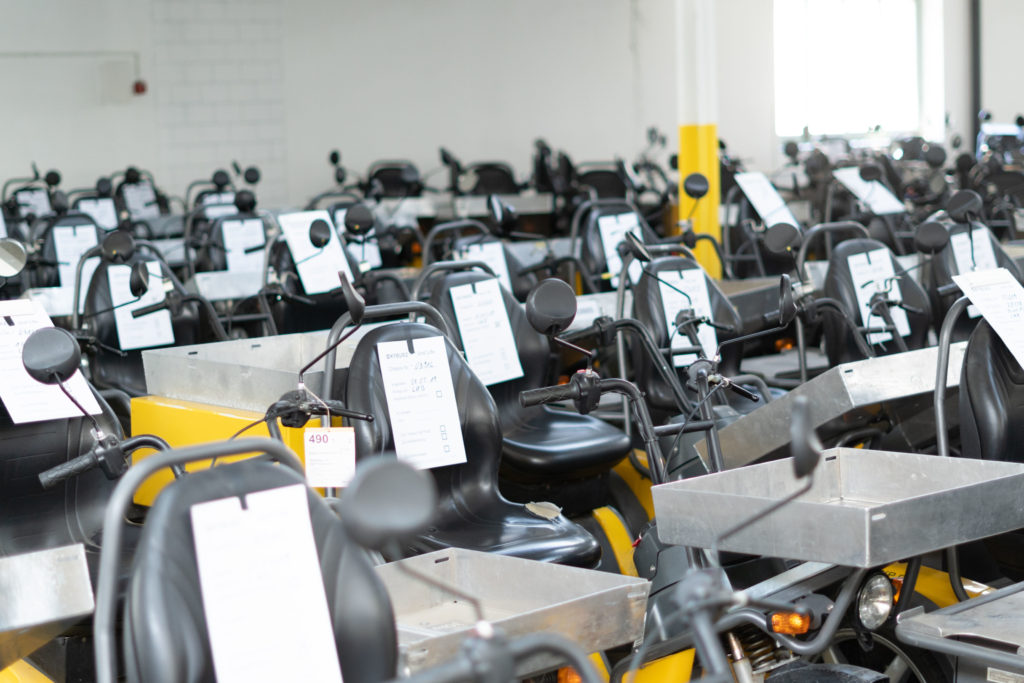Martin Kyburz is a pioneer of electromobility: way back in 1991, he founded the company of the same name to build light electric vehicles. Today, the staff of 170 generate an eight-figure turnover with delivery vehicles for postal companies, mobility scooters for senior citizens and electromobility services. The company invests part of its revenues in the development of autonomous small vehicles and fleet management systems.
The company’s R&D activities in battery recycling are another area with great revenue potential. KYBURZ uses an innovative process that was developed at the Zurich University of Applied Sciences (ZHAW) to break down used lithium-ion batteries into their individual components (including copper, graphite and iron phosphate). Unlike conventional recycling processes, it does not use chemicals and the pure raw materials produced can be easily recycled. In the medium term, these will be used as source materials for new batteries.
KYBURZ operates a battery recycling plant at its site with an annual capacity of 200 tonnes. Used batteries from the company’s own vehicles are recycled, together with batteries that come from other companies and private households. In order to meet the rapidly growing demand, a second recycling plant with a 100-times greater capacity is to go into operation soon. KYBURZ is expected to spin off the recycling business into a new company in the medium term and to license the process to other firms.
The implementation of ecologically and economically beneficial battery recycling is part of a comprehensive MultiLife concept the company has introduced to improve the life cycle assessment of its entire production process. Right from the development stage, products are designed so that they can later be disassembled into components that can be recycled easily and with little energy input. Used electric vehicles and batteries are also systematically put to second-life use. This extension of their life cycle reduces the vehicles’ grey energy by up to 65 per cent while also significantly reducing resource consumption.

KYBURZ Switzerland AG